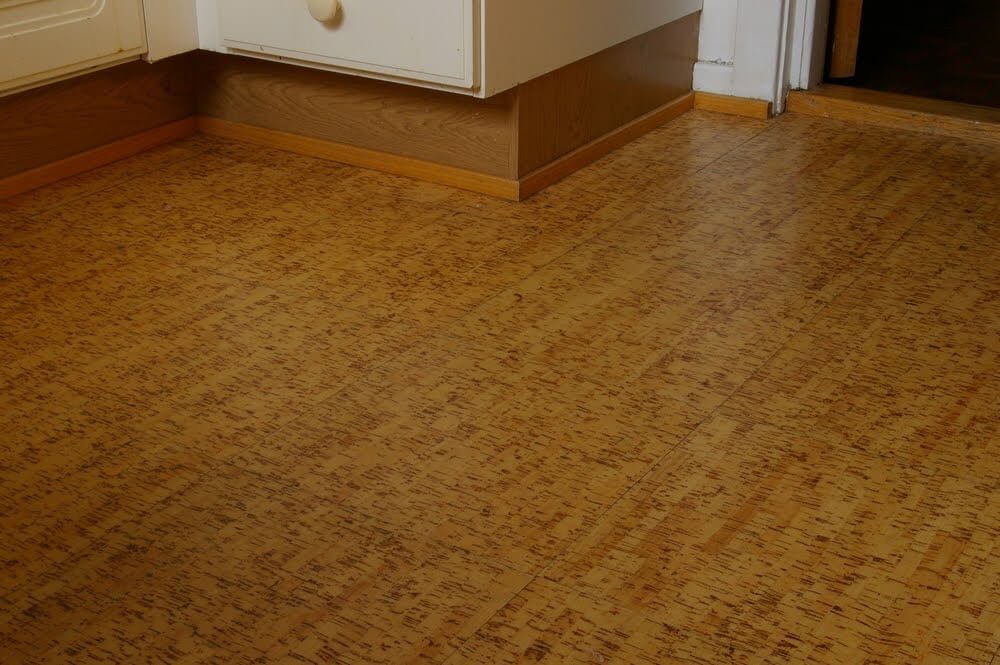When looking at flooring options for your home, it’s important to weigh the pros and cons of every type of flooring, including those that might be a little less than conventional. Cork flooring is one of those unconventional choices, but in many households, it might be just what you need.
What to Know About Residential Cork Flooring
What Is Cork Flooring?
Cork flooring is a soft wood floor type that has been around for quite some time in some form. It comes in two forms, generally: glue on tiles and floating planks. Any type of cork flooring is cheaper than most hardwood options. But what separates cork flooring from hardwood?
For one, cork is much lighter and softer than hardwood, meaning it has some give when walking on it. It’s still durable though, and it’s only slightly less resilient to damage like scratches and scuffs as hardwood. With cork floors, replacing a damaged tile or plank is a lot simpler than refinishing or replacing hardwood. Cork floors can also be refinished, just like hardwood. If you already have cork flooring in your new home but want it freshened up, don’t replace it — refinish it! Cork flooring is also highly sustainable and recyclable, making it a very eco-friendly flooring option for the home.
Other Cork Flooring Advantages
Do your feet get cold in the winter? You’re not alone! Fortunately, residential cork flooring is a great insulator, meaning it will stay warm if the rest of your home is well-heated. Indeed, many say that cork is the best non-carpet flooring for foot warmth and comfort. Cork flooring is also naturally antimicrobial and doesn’t absorb allergens, setting it apart from the other softest flooring option: carpeting. If you struggle with seasonal allergies or dust, cork might be perfect flooring for you.
Downsides to Cork Flooring
How does cork handle the elements? What is the downside to cork flooring? These are fair questions. Cork flooring is usually coated with polyurethane, making it waterproof and a good option for humid areas or locations prone to spills. But it’s not perfect. If the installation isn’t done correctly, there can be gaps between planks or tiles that allow water to the subfloor. It’s important to have cork flooring installed by experienced flooring experts. While cork doesn’t absorb allergens, it might not be the best option for homes with pets. A pet’s nails can scratch and damage the floors, gouging them. This is especially true for large dogs.
Cork floors also don’t last as long as hardwood floors on most occasions. Most manufacturer warranties extend for about 15 years. Cork floors can take a lot, but they aren’t as long lasting as some other flooring options.
Cork Floors: The Verdict
So, does cork flooring add value to a home? Absolutely! Cork floors are affordable and can help warm your home because of their insulating properties. Because of its natural hypoallergenic qualities, you won’t need to invest in air purifiers and carpet cleaners with cork flooring. In the end, cork floors are perfect for many homes, and they’re versatile enough to fit many different needs.
When you need cork flooring installed in your home in the Nashville area, please consider Ozburn-Hessey. As we mentioned, cork needs to be installed with care, and that’s the only way the experts at Ozburn-Hessey install flooring. If you’re ready for a free consultation and estimate, give us a call at Ozburn-Hessey today.




